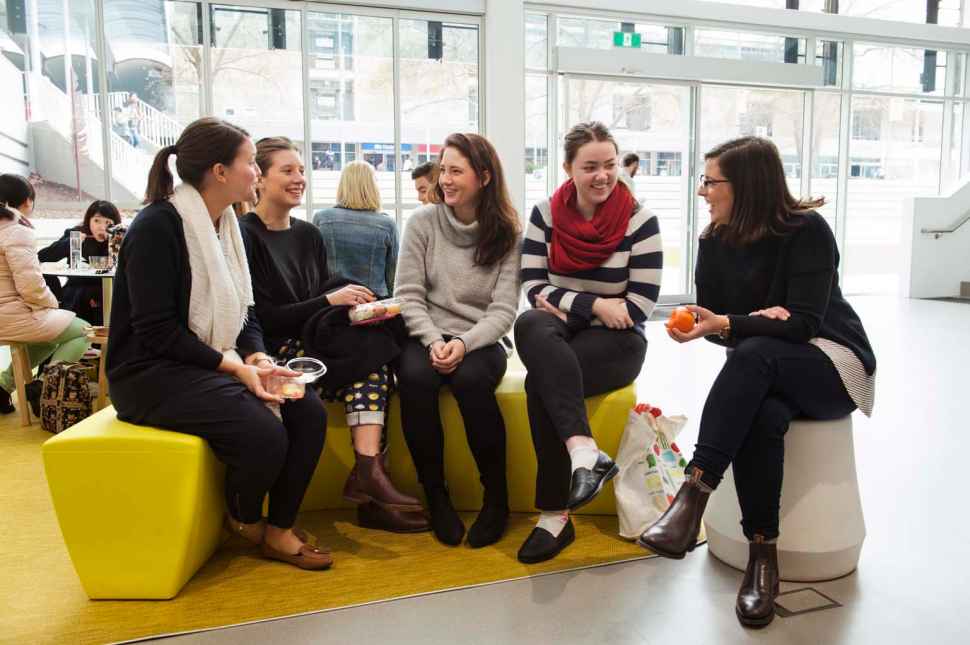STUDENT RECAPS CAREER REWARDS OF UPSKILLING IN DISABILITY
For Flinders mature aged student Marwa Al-bouch, a career in disability was a natural progression from childhood education and early intervention services for children with disabilities.
Marwa made the decision to upskill in her career by undertaking the Bachelor of Disability and Developmental Education at Flinders, furthering knowledge gained from her previous experience.
Doing so has opened her up to a variety of opportunities in the disability sector and led her to receive acknowledgement for her hard work and determination through the Developmental Educators Australia Inc (DEAI) Prize for Academic Excellence.
Marwa says her previous experience in working in an early intervention setting showed her how important receiving timely and quality support can be to the lives of people with disability and their families.
“Building upon this experience and furthering my skills and knowledge to enable me to promote independence, choice, worth and dignity of people living with disability of all ages is extremely exciting for me,” she says.
Marwa is one of many students at Flinders choosing to upskill in their career and pursue higher education studies in the field of disability and community inclusion.
The roll out of the National Disability Insurance Scheme (NDIS) and its consequential jobs boom has boosted professional opportunities for workers in the sector to upskill to meet industry demand.
The NDIS is expected to require an additional 90,000 full-time equivalent employees over the next five years, according to the Australia Government’s Department of Social Services, meaning more people like Marwa are needed with specialised skills.
Studies in the disability field are relevant to many professions – including allied health, education, nursing, and community services – helping to build a supportive and inclusive society.
Marwa recognises the interdisciplinary nature of the industry, sharing lectures and tutorials with students from a range of allied health professions including occupational therapy, physiotherapy, clinical exercise physiology and education.
“The multidisciplinary nature of the profession and the heterogeneity of disability means that a career as a developmental educator can go anywhere,” she says.
“The variety of opportunities available in this ever-evolving field of allied health is exciting because it offers career options in a diverse range of employment services.”
As the disability industry calls for more skilled professionals, qualifications across all levels of the disability sector are needed from undergraduate through to postgraduate level.
This demand opens opportunities for workers to develop new skills and advance their careers.
Flinders University’s Associate Professor in the Disability and Community Inclusion Unit, Michelle Bellon, says there are multiple higher education options that expand career pathways and allow for flexibility between courses.

“People with an interest in learning more about inclusive communities, including those with experience in the disability sector, such as support workers or volunteers, can undertake either of our two undergraduate programs (the three-year Bachelor of Disability and Community Inclusion or the four-year Bachelor of Disability and Developmental Education) enabling them to progress and take the next step in their career."
“Students can use that as a stepping stone into postgraduate options, allowing them to further develop leadership skills and apply a high level of understanding of research and policy.”
The learning for life mindset of the Flinders Disability and Community Inclusion Unit ensures students wanting to upskill in their careers are learning about policy and leadership, particularly in the fourth year of the Bachelor of Disability and Developmental Education (BDDE).
The final year of this program allows students to apply for membership with Developmental Educators Australia Inc (DEAI) to become an accredited Developmental Educator, a fast-growing profession.
Interest is also growing in the area of Positive Behaviour Support which is now recommended as best practice internationally and is funded under the NDIS.
PBS practitioners provide comprehensive and person-centred support for people who display challenging behaviours.
“PBS is embedded in an introductory way within the first years of our undergraduate program, which is then scaffolded to prepare Bachelor of Disability and Developmental Education graduates as PBS practitioners,” says Dr Alinka Fisher, lecturer in Disability and Community Inclusion at Flinders.
“Within requirements to work as a PBS practitioners, there is a focus on the importance of practice-based learning, and I believe we are the only university that has a practice-based component, as they are applying theory to practice within real-world settings.”
Marwa also sees the importance of practice-based learning and applying knowledge in the real world.
During her studies she completed a work placement at disability organisation Bedford Group, facilitating a client’s transition into employment.
“Having the opportunity to implement strategies and tools I had learnt in the classroom to build the capacity of clients and develop resources for the attainment of identified goals was very rewarding,” Marwa adds.
Contact us
We offer one-on-one appointments with our prospective student team to discuss career options, pathways, and course and entry requirements.
You might also be interested in
![]()
Sturt Rd, Bedford Park
South Australia 5042
South Australia | Northern Territory
Global | Online





